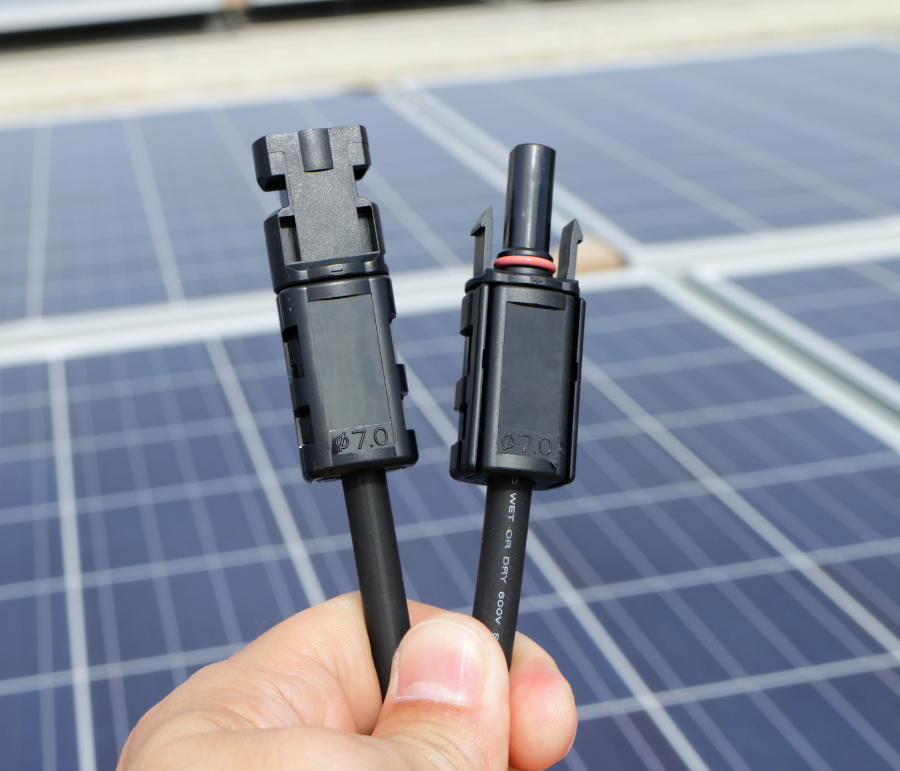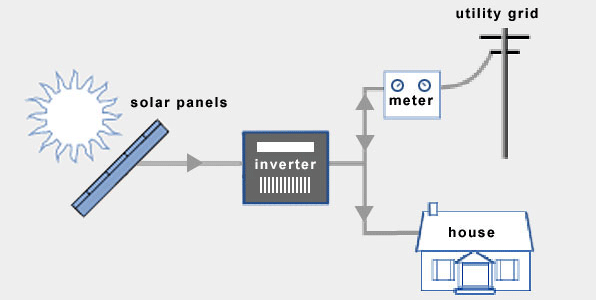Battery vs Grid-Tied Solar Systems - Which One Powers Your Future Best?

Battery vs. grid-tied solar systems. Tightness is balancing on this debate as more householders and companies get into the utilization of solar power. If you desire to save money, handle outages, or be more energy independent, having a good solar system can impact your way of living and provide for many years.
This informative article clearly explains the differences between the systems so you can select the one that works best for you based on its performance, cost, flexibility, and long-term Benefits.
What's the main difference between battery systems and grid-tied systems?
The core of the comparison of Battery vs Grid-Tied Solar System is the way to store and use energy:
-
Grid-Tied Systems pass directly to the grid.
-
Battery-based systems would save your solar energy in the batteries so that when you need it, you can retrieve it.
Grid-connected systems save you on electric bills and enable you to get credit when it comes to net metering. As opposed to this, battery systems provide backup power and energy management even in the case of an outage.
How Do Grid-Tied Solar Systems Work in Real Life?
Grid-tied systems produce solar energy during the day. In case you produce excess power, which is more than you consume, you send it through the national grid. You are rewarded with energy credits in exchange. It is an economical and easy decision. Nonetheless, when there is a power outage, such systems fail to work due to safety reasons unless you have attached a backup battery.
When Are Battery Solar Systems the Smartest Choice?
At the battery systems, it is a star when:
-
Blackouts are common to you.
-
You want power, security or off-grid.
Your house receives energy by storing solar energy even after you cease to see the sun or the grid is gone. Battery set-ups are independent and would give better peace of mind with more costly pricing.
Can I Combine Battery and Grid-Tied Solar Systems?
Yep, and they call it a hybrid solar system. The system is the marriage of the two different technologies. Grid delivers you savings on bills, and batteries provide backup. Perfect in the case of people who want the advantages of both and do not want to trade off.
Battery vs Grid-Tied Solar Systems - Which Should You Choose?
The correct system will be determined by your energy requirements, location, as well as goals:
-
Go grid-tied in case you desire affordability, ease, and utility credits.
-
Select battery-based in case you want to have power even in the event of an outage, and when you want to exercise control.

Pros and Cons of Battery-Based Solar Systems
Here are the advantages and disadvantages of theirs that will assist you in making a choice.
1. Works During Blackouts
Battery back-up systems retain your lights and appurtenances in the event of grid impairments. No clogging anymore and no emergency generators.
2. Greater Energy Control
You dictate to yourself as to when and in what way your power would be employed. You are no longer linked to erratic electric charges and a power schedule.
3. Long-Term Energy Savings
The battery systems aid in reducing the electricity bills as time goes on. The use of energy storage during peak hours minimizes the use of high-rate grid energy.
4. Higher Upfront Cost
There is a higher cost in battery installations in terms of battery costs, inverters, and management systems. It is more of a long-term investment.
5. Battery Maintenance Required
Many batteries might need to be checked from time to time, replaced, or repaired, depending on the kind they are, like lithium-ion or lead-acid.
Pros and Cons of Grid-Tied Solar Systems
Have any thoughts of connecting your solar system to the grid? In this, I discuss the key advantages and disadvantages of grid-tied solar systems in an attempt to help you come to a conclusion on whether it is worth the investment.
1. Lower Installation Costs
It also entails a considerably reduced initial outlay since no batteries are required. This is an ideal system, should you wish to be economical but enjoy the benefits of solar.
2. Earn Credits for Excess Power
Net metering will see this extra energy being put into the grid, which will earn you some credits and cut down on your monthly bill.
3. Minimal Maintenance
Grid-Tied systems have correspondingly fewer parts, so are easier to maintain. The inverter and panels are mostly all that is required to be checked.
4. Doesn’t Work During Outages
These systems shut down during power cuts for safety reasons. No battery = no backup.
5. Dependent on the Utility Grid
You are still somewhat based on your electricity supplier, which might secure you from being fully in control of your energy.

What’s the Best Way to Decide?
To decide properly between Battery vs Grid-Tied Solar Systems, ask yourself these questions:
1. What’s Your Budget?
If you're tight on budget, grid-tied is the best entry point. It will provide you with the savings of solar without the exclusion of battery storage.
2. Do You Need Backup Power?
Batteries are worth the cost if a disruption in power is a concern for your daily routine or business. They make sure that there is energy at all times.
3. Are You Planning for the Long-Term?
Although battery systems are less cost-effective in the short term since a payback can be realized more quickly with grid-tied systems, battery systems provide better savings over a 10 15 year timeframe since energy cost will increase.
4. What Incentives Are Available Locally?
Make sure your state has rebates, feed-in tariffs, or tax credits on batteries or grid-fed solar energy. This might add to what you would decide.
Battery vs Grid-Tied Solar Systems in Ireland - What's Trending?
In Ireland, the market demand for Battery vs Grid-Tied Solar Systems is on the increase because of the increased cost of energy and the effectiveness of sustainability. The SEAI (Sustainable Energy Authority of Ireland) offers grants that support solar panel installation and, increasingly, battery storage. The homeowner is taking the hybrid systems to maximize the flexibility and end profits.
FAQ’s
Q1. Which one costs less, battery-connected or grid-connected?
Grid-tied systems do not cost much to put in place, and they have faster returns. Batteries are expensive, yet energy secure.
Q2. With a grid-tied system can I install batteries later?
Yes! Most grid-tied systems are relatively easy to expand to hybrid systems, which include a battery.
Q3. Are battery systems operable when there is a blackout?
Absolutely. Battery systems are developed to ensure your house is able to remain powered in the event that the grid fails.
Q4. Which is more long-term savvy?
More can also be saved in battery systems as compared to the long term when the grid rates increase or incentives are offered.
Q5. Can cities go 100 percent solar off-grid?
It can be done though not easily. It has big capacity batteries and needs to be under the sun regularly.
Conclusion
Battery vs Grid-Tied Solar Systems have varying advantages according to your appetite. Grid-tied systems are affordable and excellent in saving on bills whereas battery systems allow you to have backup power and energy autonomy. The best of both must be a hybrid setup. Select the appropriate one based on the types of life you live and energy desires in addition to your budget.





